What is the difference between a standard film and a walkable film?
Artesive’s standard films are not designed to be applied to floors, for two reasons. They are too thin and do not have anti-slip lamination.
The Thicker series, on the other hand, in addition to having an increased thickness, has a different lamination, designed to be suitable for walking on.
But what does it mean to have obtained the DIN 51130 Certification?
Before putting the Thicker series films on the market, we subjected them to a series of tests. Application tests, resistance tests, durability and above all safety tests.
One of the main tests, given the option of use on the ground, was that of slipperiness.
The Italian legislation provides that by law a floor covering must obtain a very specific certification. That of the Ministerial Decree 236 of 06/14/89 which mainly concerns classic coatings, i.e. tiles, tiles, wooden or laminate floors. This regulation requires the coating to pass a test called BCRA.
Attention, we are talking about 1cm thick wall tiles, such as stoneware tiles!
When we sent our adhesive film to the test lab, we weren’t sure that, despite the lamination being specific for that use, it could pass the test. Instead it not only passed it, but it gave an optimal value in the wet test.
But we weren’t satisfied.
We have resubmitted the material for testing, and in this case we have requested more certification. The German one called DIN 51130: 2014.
This test is different from the first one. This is a test carried out by a first-person operator who walks on a surface coated with the material to be tested, with safety shoes at various inclinations. The surface in this case is sprinkled with engine oil. You read that right … they walk on our oil-coated films at different angles!
The result that follows from a scale of values. Based on the inclination reached before sliding, scores are assigned that adapt to the different uses of the tested material.
The factor is called the “R factor” where the letter stands for “resistance”.
The scale starts from the R9 value to the R13 value (they are the most common ones).
The R9 value is reserved for classic floor materials: ideal for entrance areas and stairs with access from the outside, shops, clinics, canteens and restaurants, laundries laboratories and places with a strong presence of water.
The R10 value, also obtained from Artesive’s Thicker series films, is suitable for all residential uses: suitable for bathrooms and showers, kitchens of small commercial businesses, garages.
The R11 value: indicates high adhesion with an inclination plane from 19 ° to 27 °, ideal for rooms for the production of food, medium-sized kitchens for shops and workplaces with a strong presence of water.
The R12 value with strong grip and an inclination plane from 27 ° to 35 °, suitable for environments with the production of dairy products, cured meats or slippery substances, large kitchens for catering establishments and car parks.
The R13 value indicates a very strong adhesion with more than 35 ° of inclination, for food production environments.
It goes without saying that our Thicker series films are suitable for walking in multiple uses in residential and small commercial spaces.
Non-slip films. Our advice
Artesive Thickers are adhesive films. They do not want and should not be understood as “substitutes” for a classic tile or laminate coating. They are different things, suitable for different uses. When you have to do a short-term floor application, or in flat, relatively small rooms or you simply want to renovate some stairs at home, our Thicker films could be for you. We do not recommend outdoor use.
Our advice is always to do some tests in case of doubts, and to read all the information on the dedicated page.
As always, Artesive places its priority on the quality of the products it sells. Beware of imitations.
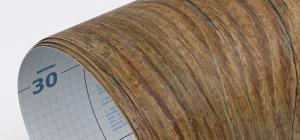 Wood Effect Vinyl Films
Wood Effect Vinyl Films
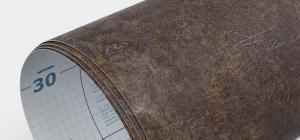 Stone Effect Vinyl Films
Stone Effect Vinyl Films
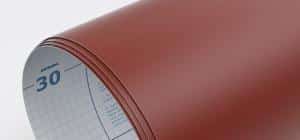 Solid Colours Vinyl Films
Solid Colours Vinyl Films
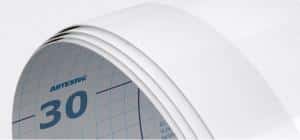 Window Films
Window Films
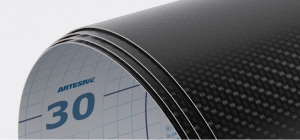 Modern Vinyl Films
Modern Vinyl Films
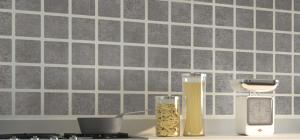 Specials Films
Specials Films



